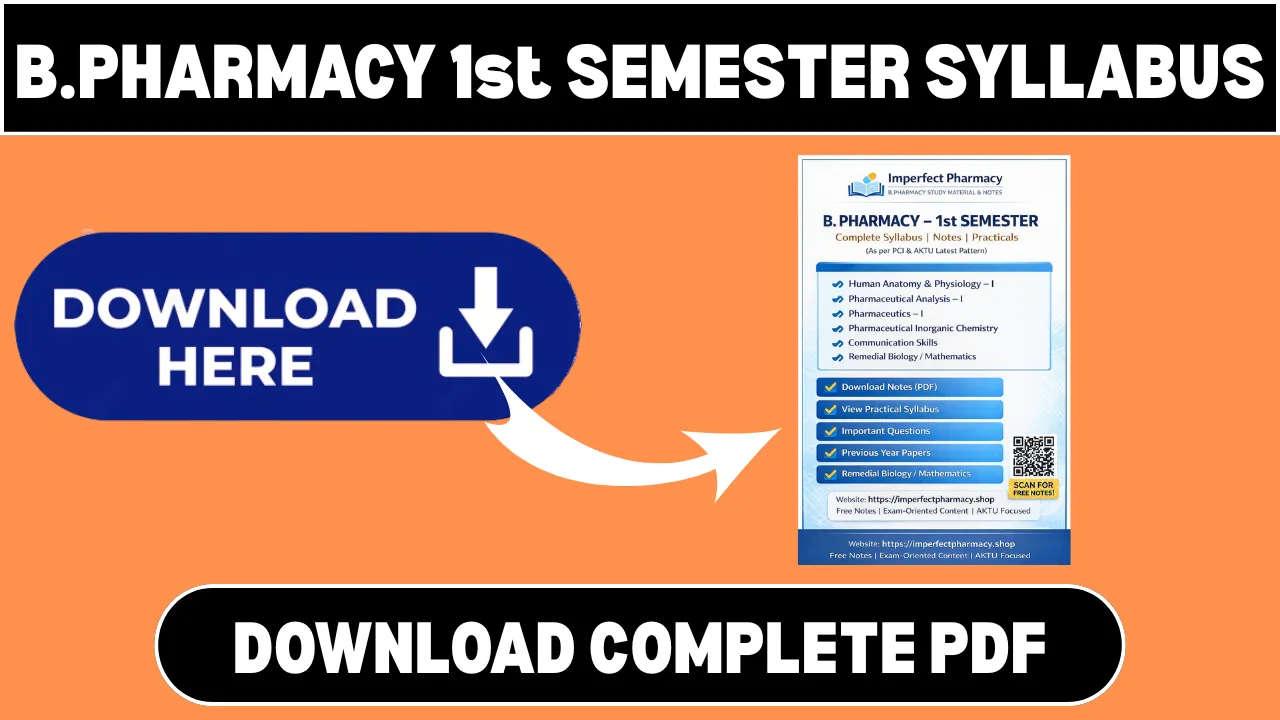Download B. Pharmacy 1st Semester Syllabus pdf
Human Anatomy and Physiology-I
Body Blueprint: Explore how cells form tissues, tissues create organs, and organs work together in systems. This provides the foundation for understanding drug action.
Skeletal Framework: Delve into bone classification, major components of the skeleton, how joints function, and common bone health issues.
Muscles in Motion: Examine different muscle types, how they contract, where the key muscle groups are located, and potential muscular system disorders.
The Control Center: Study the central and peripheral nervous systems, neuron structure, signal transmission, the brain’s regions, and how our senses work.
Internal Balance: Learn how the body maintains equilibrium (e.g., temperature, blood sugar), and the feedback systems that keep everything in check.
Blood’s Journey: Discover blood components, how it’s made, blood typing, the clotting process, and conditions that can affect blood health.
Pharmaceutical Analysis-I
Chemistry for Quality: Learn to distinguish substances and measure their quantity, ensuring drug accuracy and safety.
The Science of Titrations: Master acid-base and redox reactions, using them to precisely analyze drug content.
Ensuring Excellence: Apply principles of good manufacturing practice to test if medicines meet purity, strength, and safety standards.
Pharmaceutics-I
Delivering Medicine: Explore the many ways drugs can reach the body (e.g., tablets, injections) and their unique formulation needs.
Solutions, Suspensions, and More: Understand the characteristics, how to prepare them, and how these liquid forms influence drug delivery.
The Art of Dispensing: Learn to read prescriptions, calculate dosages, mix ingredients, and properly label medications.
Pharmaceutical Inorganic Chemistry
Elements as Medicine: Investigate how inorganic elements and compounds provide therapeutic benefits, and their specific uses.
Detecting the Unwanted: Explore sources of contamination in pharmaceuticals, methods for testing purity, and the importance of quality control.
Balancing Act: Gain a strong grasp of acids, bases, and buffers – critical for how drugs are absorbed and function in the body.
Electrolytes in Action: Understand their role in maintaining fluid balance, and how they are used in medical treatments.
Remedial Biology/Remedial Mathematics
These courses offer a refresher on essential concepts needed for your pharmacy studies, tailored to your individual background.
Communication Skills
Clear Medical Writing: Master medical terms, record-keeping, and write instructions patients easily understand.
Patient-Focused Communication: Develop strong listening skills, simplify complex ideas, and build rapport for effective patient counseling.

